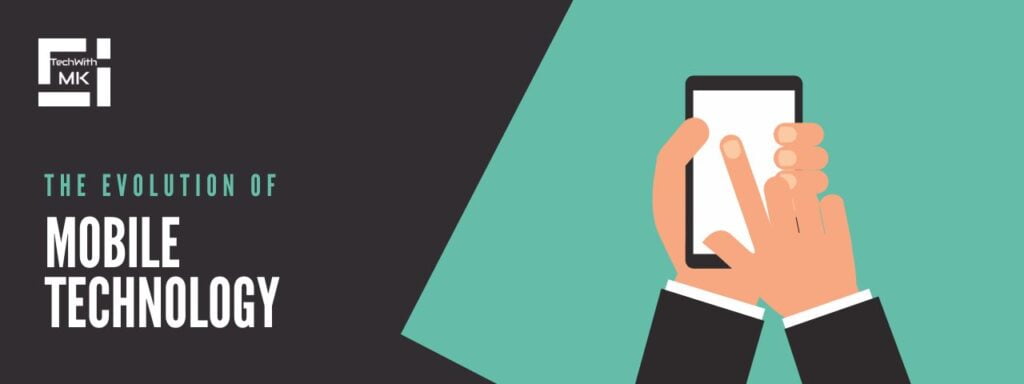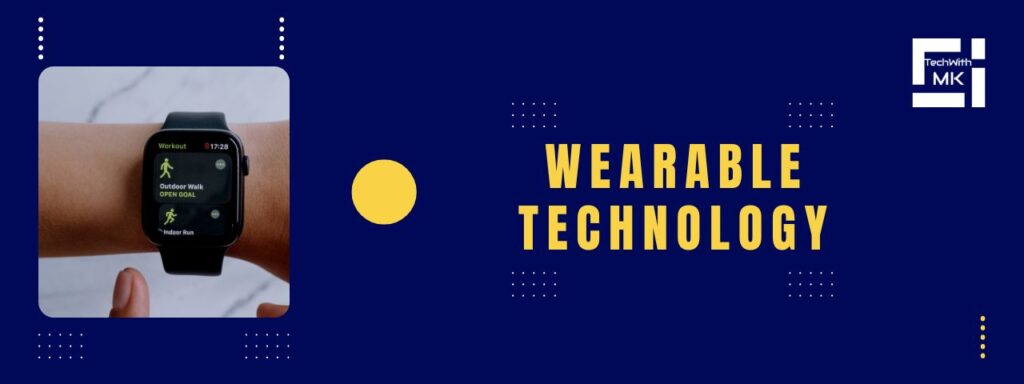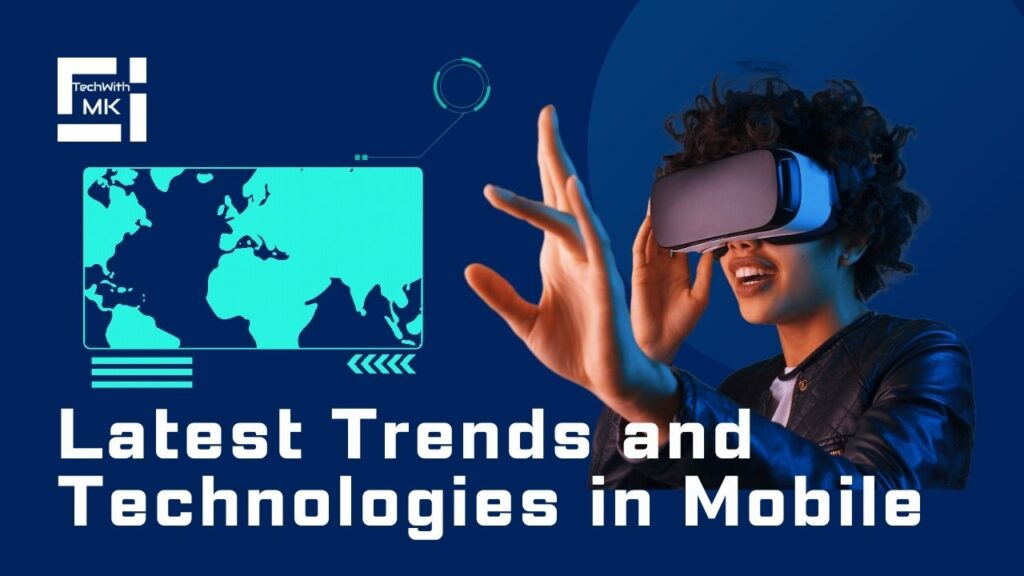Mobile technology is incredibly important in our lives, revolutionizing communication, information access, and daily activities. Along with smartphones, it brings convenience and connectivity to billions of people around the world. We depend on mobile devices for instant communication, accessing information, online services, and even health monitoring. It increases productivity, bridges communication gaps, and provides a sense of empowerment and connectivity in our digital world.
This blog post explores future trends and technologies in the mobile industry. Readers will gain insight and analysis on exciting advances such as 5G connectivity, augmented reality (AR) and virtual reality (VR), artificial intelligence (AI) integration, mobile payments, and wearable technology. Examining these emerging trends will provide a glimpse into the transformative potential of mobile technology and how life will be shaped in the years to come.
Table of Contents
The Evolution of Mobile Technology
The early stages of mobile technology saw a significant change in communication and access. Initially, mobile phones were bulky and limited to voice calls. However, technological advances led to the development of smaller, more portable devices with text messaging capabilities. Over the years, mobile technology has evolved rapidly, incorporating features such as Internet connectivity, multimedia capabilities, and touchscreen interfaces. The early stages of mobile technology laid the foundation for its ongoing revolution, ultimately shaping how we communicate, work, and engage with the world around us.

The mobile industry has been shaped by major milestones revolutionizing communication and connectivity. From the introduction of the mobile phone to the SMS revolution, mobile internet, app stores, and smartphones, each milestone brought new possibilities. These milestones have redefined how we communicate, access information, and connect with the digital world.
5G Connectivity
5G connectivity is set to change the mobile landscape, ushering in a new era of communication and connectivity. This transformative technology enables faster download and upload speeds, seamless streaming of high-definition content, and immersive gaming experiences.
In addition, 5G opens up possibilities for emerging technologies such as autonomous vehicles, smart cities, and the Internet of Things (IoT). 5G creates a network infrastructure that supports the growing demand for connectivity in our increasingly interconnected world. It opens new avenues of innovation, efficiency, and productivity across industries.

As 5G continues to roll out globally, it has the potential to reshape the mobile landscape, enabling a new wave of connectivity, convenience, and possibilities for individuals and businesses alike. 5G connectivity is poised to redefine how we interact with technology, paving the way for a more connected, intelligent, and efficient future.
Augmented Reality (AR) and Virtual Reality (VR)
Augmented reality (AR) and virtual reality (VR) technologies have significantly transformed the mobile experience. AR involves overlaying virtual content in the real world. With the mobile AR app, users can try on virtual clothes, imagine furniture in their own homes, or engage in location-based games. On the other hand, VR creates fully immersive digital environments that users can explore through a special headset.
Mobile AR opens up new avenues for entertainment, education, and practical applications. It adds an extra layer of interactivity to everyday activities. Whether trying on virtual makeup, exploring historical sites through an AR guide, or solving puzzles in augmented reality games, mobile AR enhances our engagement and expands the possibilities of our mobile devices.
Meanwhile, mobile VR offers users immersive and transformative experiences. Users can be transported into the virtual world by wearing a VR headset. It also has practical applications in areas such as training and education. Users can engage in virtual simulations and experiences for learning and skill development.
Artificial Intelligence (AI)
Artificial Intelligence (AI) has revolutionized mobile apps, enabling personalized and intelligent experiences. AI-powered virtual assistants like Siri and Google Assistant understand natural language and act on commands, while AI algorithms enhance functionalities such as image and voice recognition.
AI-powered image recognition allows apps to identify objects, places, and people in photos. Voice recognition enables accurate speech-to-text conversion and facilitates voice commands. AI automates processes and decision-making in mobile apps. The integration of AI enhances user experience through personalized interactions, anticipating preferences, and automating actions.

As AI advances, the possibilities for further innovation in mobile apps are limitless. Integrating AI technology has transformed mobile apps into intelligent and dynamic tools. The future holds even more tremendous potential for AI to enhance mobile apps, providing users with seamless and intelligent interactions.
Payments and Digital Wallets
Mobile payments and digital wallets have revolutionized how we handle financial transactions. Digital wallets securely store payment details and enable instant and contactless payments.
Digital wallets, such as Apple Pay, Google Pay, and Samsung Pay, provide an additional layer of security. Users can easily track their spending and access transaction history through the mobile banking app or digital wallet interface. The security and convenience of mobile payments make them an attractive alternative to traditional payment methods such as cash or physical cards.
Mobile payments and digital wallets evolve with new features and functionalities as technology advances. This includes peer-to-peer payments, loyalty program integration, and the ability to store digital ID cards, tickets, and coupons. With their convenience, security, and accessibility, mobile payments and digital wallets have changed how transactions are handled.
Mobile Health (mHealth) and Wearable Technology
Mobile health encompasses the integration of mobile devices into healthcare. Through mobile devices such as smartphones and tablets, healthcare professionals can access patient information. Mobile health apps enable individuals to monitor their vital signs, track medications, and access valuable health information.

Wearable technology plays an essential role in monitoring health and promoting fitness. Smartwatches and fitness trackers collect data on physical activity, heart rate, and sleep patterns. Wearables provide real-time feedback, motivating individuals to maintain healthy habits and prevent potential health problems.
The future of mHealth has exciting possibilities, especially in remote patient monitoring and personalized healthcare apps. Remote patient monitoring enables healthcare providers to remotely track patients’ vital signs, symptoms, and treatment adherence. Personalized healthcare apps leverage personal health data to provide tailored health information, treatment plans, and virtual consultations.
Conclusion
In conclusion, the future of mobile technology has immense transformative potential. From advances in 5G connectivity and augmented reality (AR) to the integration of artificial intelligence (AI) and mobile health solutions, mobile devices are set to revolutionize industries and enhance our daily lives.
To fully embrace this evolving world of mobile technology, it is important to stay informed and updated about the latest trends and technologies. By doing so, we can unlock the opportunities they provide, simplify tasks and increase productivity, ultimately enriching our lives in countless ways. So, let’s embrace and be curious about the future possibilities of mobile technology as we navigate this changing landscape.


